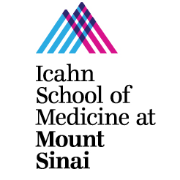About
Ramon E. Parsons, MD, PhD, is Director of The Tisch Cancer Institute (TCI) and Dean for Cancer Research at the Icahn School of Medicine at Mount Sinai. He is also the Ward-Coleman Chair in Cancer Research, Director of the Mount Sinai Tisch Cancer Center, and Chair of the Department of Oncological Sciences at Icahn Mount Sinai.
In 2017, Dr. Parsons was appointed Director of The Tisch Cancer Institute—a National Cancer Institute-designated cancer center—after serving as Deputy Director and Co-Leader of the Cancer Mechanisms program. Dr. Parsons joined Icahn Mount Sinai in 2013.
Previously, he was on the faculty of the departments of Pathology and Medicine at Columbia University. He was named Assistant Professor in 1995 and later became the Avon Foundation Chair for Breast Cancer Research in 2002. He was named Professor in 2007 and Leader of its Breast Cancer Program at the Herbert Irving Comprehensive Cancer Center in 2005. Dr. Parsons is a member of the National Academy of Medicine, American Society for Clinical Investigation, American College of Physicians. He was Chair of the AACR Special conferences committee for two terms from 2011-2017, which initiated and planned more than 75 scientific meetings on different cancer-related topics.
Dr. Parsons maintains an active laboratory and has received multiple awards for his research, including the 2011 American Association for Cancer Research (AACR) Outstanding Investigator Award for Breast Cancer Research. He is internationally recognized as an expert in the fields of cancer genetics and signal transduction with an emphasis on tumor suppressor genes including PTEN.
Ramon Parsons, MD, PhD., grew up in Washington, DC, and graduated from Columbia College, Columbia University in 1983.  Dr. Parsons then attended the State University of New York at  Stony Brook where he received his M.D. and Ph.D. degrees in 1992.  Dr. Parsons continued his education at Johns Hopkins University  School of Medicine as a postdoctoral fellow with Bert Vogelstein.  There, he and his colleagues discovered that inactivation of DNA mismatch repair genes cause hereditary colorectal cancer. At Columbia University Medical Center, his research laboratory identified the PTEN tumor suppressor gene, which he showed is inactivated in a wide variety of cancers and cancer predisposition syndromes. He has been a leader in establishing the importance of PTEN and the PI3K pathway for cancer using a combination of genetic, biochemical, human tissue, metabolic, and systems biology approach.
In 2013, he joined the faculty at the Icahn School of Medicine at Mount Sinai as Ward-Coleman Professor in Cancer Research, Chairman of the Department of Oncological Sciences and co-Leader of the Cancer Mechanisms Program of the Tisch Cancer Institute. In 2016, he was selected as an Icahn Scholar and as the Deputy Director of the Tisch Cancer Institute. Recently, Dr. Parsons was appointed Director of the Tisch Cancer Institute, ISMMS, and Director of Mount Sinai Cancer, MSHS. Prior to joining the faculty at ISMMS, Dr. Parsons was the Avon Professor of Pathology and Medicine and Leader of the Breast Cancer Program of the Herbert Irving Cancer Center at Columbia University Medical Center. Dr. Parsons is a member of the American Society for Clinical Investigation and the American Association of Physicians.
He is also a recipient of the 2011 American Association for Cancer Research Outstanding Investigator Award for Breast Cancer Research. He served as Chair of the Special Conferences Committee at the AACR from 2011-2017. Dr. Parsons was inducted into the Johns Hopkins University Society of Scholars in 2015 and, elected to the National Academy of Medicine in 2017.
Skills & Expertise
Medicine
Research Interests
Medicine
Cancer
Pathology
Connect With Me
Experience
Director of Tisch Cancer Institute & Mount Sinai Cancer
- Ward-Coleman Professor in Cancer Research, 2013- Chair Department of Oncological Sciences, 2013- Director of the Tisch Cancer Institute, 2017
dd




